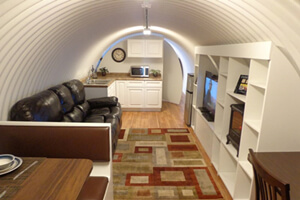Why the Tokyo Olympics Are So Expensive
Narrator: Tokyo’s 2020 Olympics are already the most expensive summer games ever. And that’s before the games have even taken place. The Japanese public is largely against them in the midst of a pandemic. And there’s no guarantee they will happen at all. Now, the city of Tokyo, the International Olympic Committee, and athletes themselves are bleeding cash. It all adds up, so money is stretched a little thin right now. But the problems run deeper than the delay. So what makes the Tokyo Olympics so expensive?
When Tokyo won the bid for the Olympics in 2013, the cost estimate was $7.3 billion. Today, expert estimates run to $26 billion. The problem starts with the venues – 43 of them to be exact. The National Stadium is meant to be the site of the opening and closing ceremonies, as well as track and field events and soccer. It was a financial disaster before a single brick was laid. Japan hired star architect Zaha Hadid for the design. But cost estimates quickly ran well over budget. And when the price hit $2 billion, the plan was scrapped. Version two didn’t fare much better. Japanese architect Kengo Kuma designed the 68,000-seat stadium with a mix of steel and wood from every single one of Japan’s 47 prefectures. The cost? $1.4 billion. The design of the gymnastics center basically didn’t change, but the cost more than doubled by the time it was completed in 2019.
Sayuri Shirai: So, the yen’s depreciation means import costs are much higher. So lots of construction materials are all imported from other countries. So that also gave rise to the additional cost in the construction sectors.
Narrator: With eight new venues and 10 temporary ones, costs added up quickly. There’s a plaza for badminton and pentathlon, an aquatic center for swimming and diving, the volleyball arena, and of course, the canoe and kayak center. And that’s just to name a few.
Bent Flyvbjerg: It’s the only project type we have found where we can’t even find one project that was done on budget. Each and every one of them, for which data exists, have run over budget.
Narrator: While cost overruns at the Olympics are something of a biennial tradition, a number of factors made Japan’s expenditures worse.
Sayuri Shirai: The construction cost is rising partly because of this rising cost, as a result of a serious labor shortage in construction sectors.
Narrator: And that’s part of why the construction of 21 buildings in the Olympic Village has a price tag of nearly $2 billion. That cost is supposed to be offset by selling apartments to the general public after the Olympic Games. Today, they are sitting empty.
Toshiro Muto: The postponement has just been decided, so we have not yet considered [additional costs].
Narrator: The yearlong postponement increased operational costs by another $1.6 billion. Tokyo covered maintenance for all venues, ramped up security, and paid to rent the Olympic Village for a year instead of a month.
Sayuri Shirai: Lots of stadiums and some sports players’ housing, those are just left empty without being utilized. So there is an opportunity cost there.
Narrator: This included canceling many of the warm-up events that would have brought in revenue. The controversy over holding the games grew amidst rumors that Japan decided to cancel the games, though the rumors were quickly denied by the government and the IOC.
Sayuri Shirai: To be honest, the public feels probably it’s better the games will be canceled, or at least postponed. However, the companies have a different view. The corporate sector, they definitely want to hold a Games this year.
Narrator: The International Olympic Committee doesn’t invest in infrastructure, but maintains requirements on venue sizes.
Bent Flyvbjerg: The IOC has an interest in getting the best show, you know, with the most viewers. And they’re actually not too concerned about costs.
Narrator: The Olympics draws millions of TV viewers around the world. Nearly three-quarters of the IOC’s revenue comes from selling these rights to broadcasters like NBC. The opening and closing ceremonies attract the biggest audience, featuring hundreds of performers, laser light shows, fireworks, and the lighting of the Olympic cauldron. Those events in Tokyo have an expected cost of $118 million. For all the burden of hosting the games, Tokyo will see almost no share in the valuable broadcast rights. And the host city could be out even more with the loss of ticket sales, which are expected to reach more than $850 million.
If the games do go forward, $900 million in added COVID precautions will bring the total cost of the delay to $2.8 billion.
Sayuri Shirai: The Tokyo Olympic organizers have to prepare about 300 doctors every day. Additionally, 400 nurses. That is quite difficult.
Narrator: While all these numbers seem like a burden for a host city to endure, there’s also the cost to the individual athlete. Allan Bower is a gymnast on the US national team trying to make his first Olympics.
Allan Bower: We set up a gym in my garage. Worked out there. You know, we just tried to do everything that we could, but my world kind of got flipped upside down when COVID hit.
Narrator: A good pommel horse can cost $5,000. The protective mats around it? $1,500 each. Ceiling-mounted rings? $600. The garage? Part of his $1,100 a month in rent. Luckily, he was spared a lot of those costs.
Allan Bower: We had a couple of gyms send us some of the equipment. We had a bunch of support from all around the state of Oklahoma and Texas.
Narrator: It’s hard to imagine that all of this might be for nothing. There’s still a real chance the Olympics could get canceled outright. Some event organizers already learned their lesson. The Wimbledon tennis tournament took out insurance against virus-related pandemics in 2002, when SARS threatened to become a global pandemic. Wimbledon actually netted about $140 million this year when it had to cancel because of COVID.
In Japan, insurance losses of a complete cancellation are estimated at $2 billion to $3 billion, not even half of Tokyo’s original bid to host the games. The Tokyo Organizing Committee now says its budget is $15.4 billion – twice the original estimate. But experts, and even Japan’s auditor, disagree.
It’s a boondoggle that may change the Olympics forever. Whether the party in Tokyo happens remains to be seen. But the bill is coming due.















